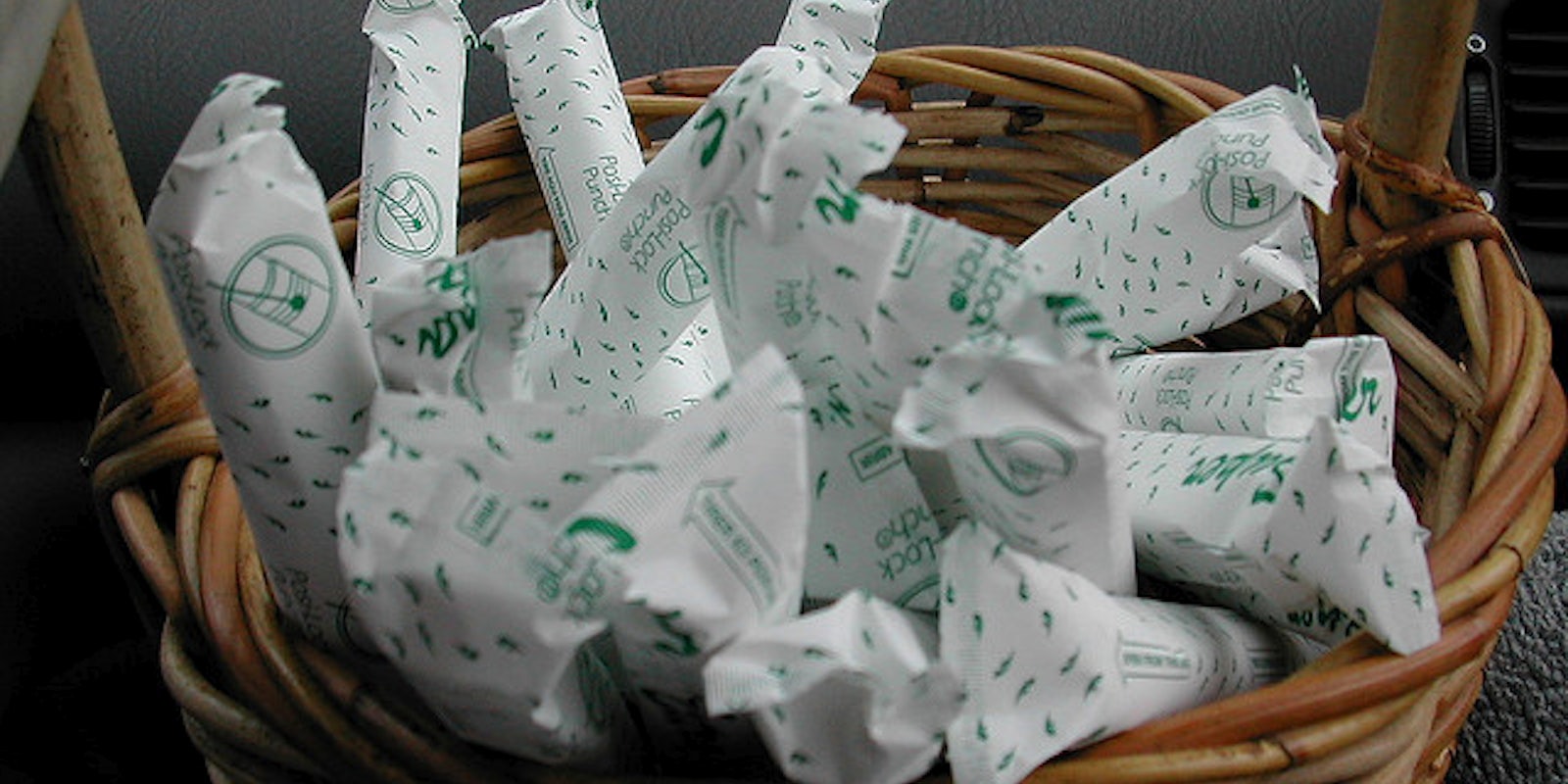Tampon delivery services have become a trend in recent years. There’s one for every type of menstruating woman, whether her tastes align more with the practicality of Lola or the humor of Hello Flo. Now, a new service may appeal to socially-conscious types—those who want to give back to others while enjoying convenience for themselves.
Yesterday saw the launch of Cora, a service that offers both delivery subscriptions for purchase as well as charitable donations for women and girls in the developing world. For every monthly supply of tampons that Cora subscribers receive, the company will send a month’s supply of sustainable pads to a girl who needs help getting feminine hygiene products.
It’s launch day! Read our Womanifesto and get inspired to rock your life and your period, fearlessly. https://t.co/VkBLIqwbE4
— Cora (@our_cora) February 8, 2016
Cora was developed by Molly Hayward, a public health advocate who became passionate about menstrual hygiene product accessibility while working with girls in Kenya, and Morgen Newman, an entrepreneur whose fascination with his wife’s disposable tampon struggles led him to brainstorm a better system.
“The average American woman is using 10,000 tampons in her life,” Newman told Teen Vogue this week. “In a day in and age when we buy organic groceries at Costco, we buy brands that are more sustainable and better for our bodies, I just thought the consumer deserves a better choice for their lifestyle.”
Cora subscriptions range from $9 to $18 per month and are customizable. The cost for each subscriber is dependent on how many tampons are needed each month (6, 12, 18, or 24) and what level of absorbency is needed. Subscribers also have the option of paying monthly, quarterly, or annually. All Cora tampons are made from premium organic cotton and have plastic applicators. Included in the first shipment are black carrying cases, meant to be both stylish and discrete.
Due to issues like poverty and cultural norms that stigmatize menstruation, feminine hygiene products are incredibly difficult for women and girls to access in the developing world. AFRIpads, a Ugandan organization that locally manufactures reusable pads, cites a UNICEF estimate that 1 out of 10 African schoolgirls skips school during her period—or drops out entirely—due to lack of access to sanitary products. This lack of access, therefore, can have lifelong consequences on the lives of women who have to prioritize period maintenance over their education.
Some menstrual product companies are already working to address these disparities. For example, Lunapads, a company that specializes in resuable menstrual alternatives, has partnered with AFRIpads on the One4Her program: Schoolgirls in Uganda receive an AFRIpad product whenever a Lunapads customer purchases pads, pantyliners, DivaCup kits, or Lunapads kits.
Cora’s approach is similar—through partnerships with grassroots organizations similar to AFRIpads, women and girls in developing nations will receive monthly supplies of sustainable pads for every Cora monthly subscription. Since Cora operates on a subscription model rather than through one-off purchases, they have the potential to establish true consistency with the developing populations they serve.
Photo via Eric E Castro/Flickr (CC BY 2.0)


